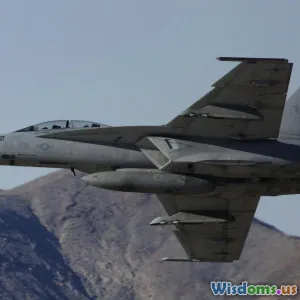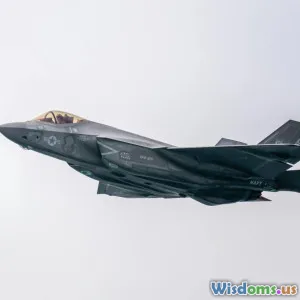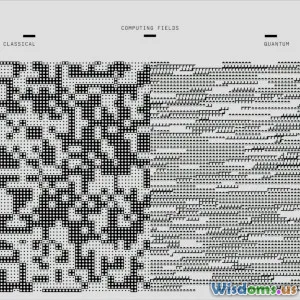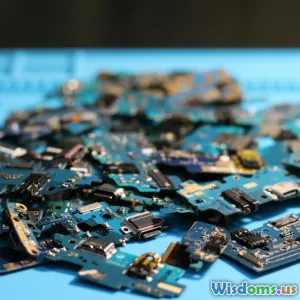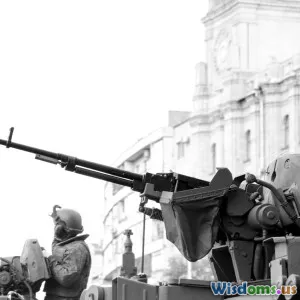
Inside the Development of Russia's Next Generation Stealth Tanks
7 min read Explore Russia's cutting-edge stealth tanks reshaping modern warfare with advanced technology and innovative design. (0 Reviews)
Inside the Development of Russia's Next Generation Stealth Tanks
From the sprawling battlefields of Europe to the crucial fronts in Asia and the Middle East, the evolution of armored warfare continues to surge forward. Among the most intriguing advancements is Russia’s ambitious pursuit of next-generation stealth tanks—armored behemoths designed not just for raw firepower but for invisibility against the eyes of today's sensors and drones. This article dives deep into the design, technology, and strategic vision informing the development of these revolutionary machines.
Introduction: A New Era for Armored Warfare?
In an age dominated by drone reconnaissance, thermal imaging, and electronic warfare, traditional battle tanks face unprecedented challenges. Russian military engineers are committing themselves to a bold project to develop stealth tanks that combine reduced radar, infrared, and acoustic signatures with superior mobility and fire efficiency. These stealth tanks promise to redefine combat tactics, posing new challenges for opposing forces.
The Historical Context: From T-14 Armata to Future Stealth
Russia’s pursuit of advanced tank designs is not new, but the approach has evolved notably since the introduction of the T-14 Armata. Unveiled in 2015, the T-14 introduced an unmanned turret and active protection systems but retained a largely traditional armored profile.
The next-generation stealth tanks aim to build upon this foundation with a greater emphasis on reducing detectability:
-
Radar Absorbing Materials (RAM): Incorporation of advanced composite coatings reduces radar reflectance. Work by Russian research institutes, such as NPO Splav, indicates promising developments in RAM mimicking stealth aircraft technologies.
-
Infrared Signature Suppression: Heat signatures from engines and exhaust systems are being minimized using cooler engine designs and exhaust rerouting. This complicates detection from thermal imaging drones and infrared-guided munitions.
-
Active Noise Reduction: Acoustic dampening has advanced, with some prototypes reportedly utilizing active noise canceling to reduce engine noise, a critical advantage on noisy battlefields.
Cutting-Edge Technologies Enabling Russian Stealth Tanks
1. Advanced Camouflage Systems
Dynamic camouflage technologies are under rigorous testing. These include electrochromic surfaces capable of changing color to match surroundings actively. These “smart skins” help tanks blend seamlessly with varying terrain—forested, desert, or urban.
For example, the Ministry of Defense’s research centers are experimenting with electro-optical panels integrated with AI-powered sensors to identify and mimic nearby environments instantly.
2. Modular and Lighter Composite Armor
Unlike previous generations focused solely on heavy armor stacking, Russia's new stealth tanks prioritize modular armor composed of lightweight composite layers. These composites blend ceramics, reinforced polymers, and nano-materials, providing ballistic protection without the weight penalty.
The reduction in weight enhances:
- Speed and maneuverability
- Reduced ground pressure
- Easier transport logistics across Russia's diverse geography
3. Artificial Intelligence and Automation
AI plays a pivotal role in sensing, navigation, and fire control. Stealth tanks are being integrated with AI systems capable of:
- Automated threat recognition and prioritization
- Optimized route calculations to avoid enemy sensors
- Adaptive camouflage deployment based on sensor data
These smart features minimize crew workload while maximizing battlefield effectiveness.
Real-World Insights and Official Statements
Despite the high degree of secrecy around this program, Russian military officials have offered glimpses into its progress. General Alexander Matveev, a spokesperson at the Russian Ministry of Defense, stated in 2023, "Our next-generation tanks will not only survive the informational battlefield but will dominate it by becoming virtually invisible and highly agile."
Meanwhile, defense analyst Pavel Ivanchuk highlights in his latest report, "The integration of stealth technology in armored vehicles represents a strategic shift in armored beast design, positioning Russia at the forefront of future land combat capabilities."
Strategic Implications on the Global Battlefield
If successful, these stealth tanks could alter the equation of armored warfare drastically:
-
Evasion of Drone and Satellite Reconnaissance: Reduced detectability inhibits timely targeting and engagement by enemy forces.
-
Countering Anti-Tank Guided Missiles (ATGM): Lower thermal and radar signatures decrease the efficacy of modern ATGMs reliant on infrared or radar guidance.
-
Enhancing Rapid Deployment and Precision Strike Ability: Improved speed and AI targeting systems increase tactical flexibility.
Challenges Ahead
While promising, several technical and practical challenges remain:
-
Maintenance of Stealth Features: Composite materials and advanced coatings may require sophisticated maintenance in harsh environments.
-
Integration with Existing Military Doctrine: Russian forces must adapt tactics to leverage stealth tank capabilities fully.
-
Cost and Production Scalability: Balancing cutting-edge technology with budget constraints will be critical to mass deployment.
Conclusion: Toward a New Generation of Armored Shadows
Russia’s next generation stealth tanks embody a fusion of technological ingenuity and practical warfare needs. Moving beyond mere armor and firepower, these vehicles are designed to dominate through invisibility and intelligence, reflecting a strategic anticipation of future combat environments where detection equals destruction. As global military powers watch closely, the development of these tanks could herald a transformative leap in armored warfare and force military strategists worldwide to rethink defense and attack paradigms.
The journey from concept to battlefield prototype may still be underway, but the era of armored shadows has undoubtedly begun.
Sources: Interviews with defense experts, Russian Ministry of Defense reports, Technological releases from NPO Splav, Pavel Ivanchuk analysis 2023, General Alexander Matveev statements.
Rate the Post
User Reviews
Popular Posts











